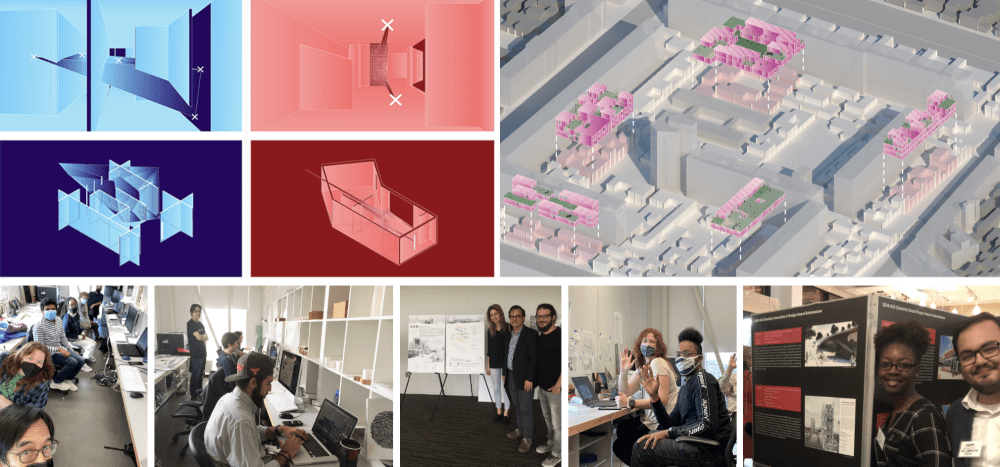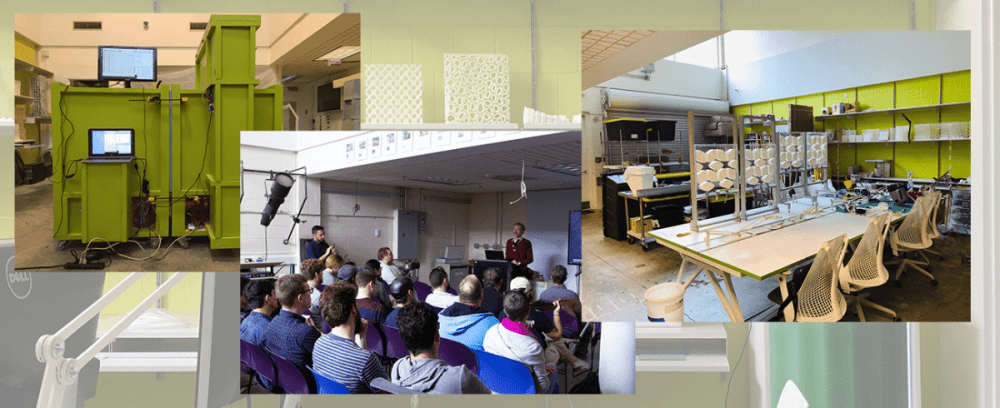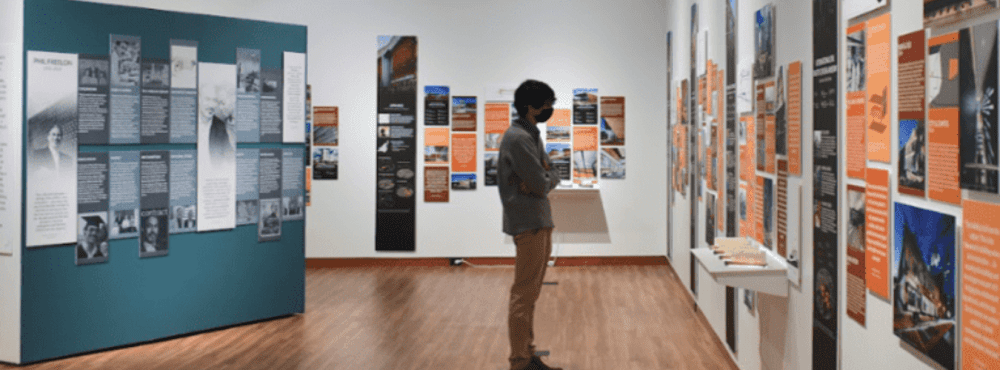Research Labs and Centers
Within the David R. Ravin School of Architecture, there are several research centers and laboratories that provide a base for faculty research and also become a point of contact for students to engage in funded research projects with the faculty. This research takes full advantage of the advanced computing, software and digital fabrication facilities at the CoA+A. The scale of research ranges from small, short-term investigations to large, multi-year grants.
SoA Research Labs
City.Building.Lab (CBL)

The City Building Lab is the community-engaged research arm of the David R. Ravin School of Architecture, located in The Dubois Center at UNC Charlotte Center City. City Building Lab foregrounds common threads connecting the research interests of affiliated faculty members though explorations of the ways that cities have been, are, and continue to be shaped over time. The lab simultaneously encompasses a wide set of initiatives while also supporting the University’s urban research mission.
City Building Lab serves both as a clearing house for ideas and action-based research. CBL continues to support the missions of the School of Architecture and the College of Arts + Architecture through its emphasis on sustainable urban, community, and architectural design and through its focus on “local-to-global” urbanism. Faculty and students engage with communities, particularly those most often overlooked in design and community planning processes, to realize built environments that use design tools to embody the knowledge, values, and aspirations of local people. Processes are open-ended, modeling design practice as systems-oriented and multi-sca
designLAB

The designLAB is an architectural design and research-based lab in the David R. Ravin School of Architecture that focuses on the role of design as a form of architectural inquiry in the analysis and transformation of the built environment through targeted speculations, experiments, design competitions, and pilot projects. Established in 2016, the mission of the d-LAB is to empower design as an agent of research to advance contemporary issues in architecture. Students are invited to collaborate with faculty on design-research-based projects.
The goal of the designLAB is to extend the school’s design and research focus in the context of the “engaged city,” one of six areas of distinction in the School of Architecture. The predominant research areas of the d-LAB are affordability, modularity, sustainability and spatial perception. These research subjects have been tested in the design of micro-modular housing, work-live and multi-family housing. The projects explore the use of different building materials, including cross-laminated timber, pressed steel plate, recycled plastics and myco-materials. The d-LAB has been the recipient of numerous awards from the Association of Collegiate Schools of Architecture and the American Institute of Architects, among others.
The designLAB is located at the Dubois Center designed by KieranTimberlake, in the first of four wards in downtown Charlotte, 25 minutes southwest of the School of Architecture via light rail, which is to say: “to be in the d-LAB is to be in the city.”
Contact Us: Prof. Chris Jarrett, Co-Director: chjarrett@charlotte.edu, Prof. Peter Wong, Co-Director: plwong@charlotte.edu.
Mailing Address: designLAB, David R. Ravin School of Architecture, Dubois Center at UNC Charlotte Center City, 320 E. 9th Street, Room 1004a, Charlotte, NC 28202 USA.
Integrated Design Research Lab (IDRL)

The Integrated Design Research Lab (IDRL) (including the Laboratory for Innovative Housing and the Daylighting Lab) serves as a research praxis where academia, industry, and the public community can freely engage, collaborate, and implement research toward climate change mitigation and social resilience. The mission of the IDRL is to advance applied architectural research and knowledge through the dissemination of evidence-based investigation and proactive design leadership.
Our IDRL research fosters inter-/trans-disciplinary collaborations experimenting with new material cultures, technological innovations, health and wellbeing, and net-zero design. With an interdisciplinary approach, we work with experts in diverse backgrounds including architecture, engineering, biology, computer science, geographic science, public health, and psychology. Our research projects strive to go beyond R&D within the lab and translate the latest innovations into practical applications for tangible impacts. We share our research advancement and knowledge with a wider audience through workshops, lectures, conferences, peer-reviewed publications, technology demonstrations, and lab visits.
The IDRL is led by Professor of Architecture Kyoung Hee Kim, Ph.D, AIA, NCARB.
CoA+A Research Labs and Centers
Digital Arts Lab (D+Arts)

The mission of the Digital Arts Center (D+ARTS) of the College of Arts + Architecture is to foster transformative uses of digital technology in the arts to improve community partnerships; accessibility; intra-college dialogue; and student and faculty research that is local, national, and international in scope and partnerships.
Since the founding of the College of Arts + Architecture, D+ARTS has become a lively venue for collaborative, multi-disciplinary activity across the College. D+ARTS projects have included digital fabrication, urban visualization, responsive environments, multidisciplinary performance, and creative exploration of new technologies. D+ARTS was originally called the Digital Design Center and was founded by Professor of Architecture Eric Sauda. Today, D+ARTS is directed by Associate Professor of Music Jessica Lindsey.
Research Center for Community, Heritage, and the Arts (CHArt)

The Center for Community, Heritage, and the Arts (CHArt) was formed as a space for interdisciplinary conversations focused on preservation and interpretation of the built environment through hands-on engagement with communities, their legacies, and specific places. CHArt is rooted in the College of Arts + Architecture with close partnership to the College of Humanities & Earth and Social Sciences. Through our mission-focused efforts, CHArt expands the roles of the visual and performing arts, museums, archeological sites, and other fields within critical heritage and preservation efforts.